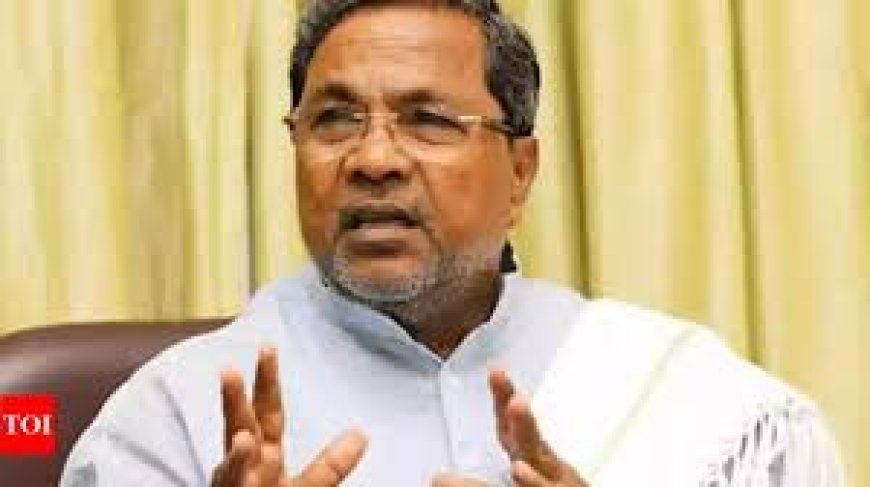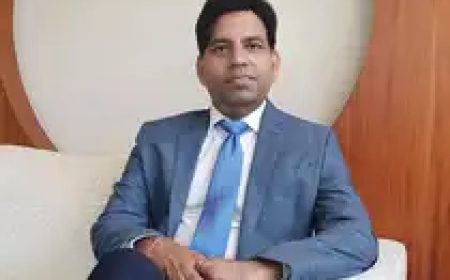Will stick to two-language policy': Karnataka CM Siddaramaiah after Maharashtra's 'Hindi imposition' row
Karnataka CM Siddaramaiah says the state will stick to its two-language policy, rejecting any Hindi imposition amid Maharashtra's language row. Full coverage with insights and reactions.

Bengaluru, July 1, 2025: Karnataka Chief Minister Siddaramaiah reaffirmed the state's commitment to its two-language policy amid renewed debates over the imposition of Hindi following recent events in neighboring Maharashtra. Speaking to the media, Siddaramaiah emphasized the state's stance on linguistic diversity and the primacy of Kannada, asserting that Karnataka would not allow the imposition of Hindi or any other language beyond the constitutionally mandated structure.
Background: Maharashtra's Controversial Move Sparks Debate
The controversy arose last week after the Maharashtra state government issued a notification requiring certain central government offices and agencies in the state to prioritize Hindi for official communication. The move has since drawn sharp criticism from regional parties and language rights activists across southern India, reigniting concerns over the perceived marginalization of regional languages.
Siddaramaiah’s Firm Stand
“We are committed to the two-language policy — Kannada and English — as it aligns with the cultural and administrative needs of our people,” Siddaramaiah said in a press briefing. “There is no place for the forced imposition of Hindi in Karnataka. Language is an emotional and identity-driven issue, and we must respect linguistic plurality as envisioned in the Constitution.”
The Chief Minister also pointed out that the Constitution of India does not declare Hindi as a national language and that all scheduled languages enjoy equal status.
Support from Civil Society and Linguistic Experts
Siddaramaiah’s statement found strong backing from civil society groups and linguistic scholars. Dr. Udaya Kumar, professor of cultural studies at a leading Bengaluru university, said, “India’s strength lies in its linguistic diversity. Imposing one language over others will create unnecessary tensions and alienate communities. The CM’s reiteration is timely and necessary.”
Kannada Sahitya Parishat, a prominent literary body in the state, lauded the CM’s stand and urged the Centre to avoid steps that may be perceived as disrespectful to regional identities.
National vs. Regional: A Long-standing Linguistic Fault Line
Language has been a contentious issue in India, particularly between Hindi-speaking northern states and the linguistically diverse southern states. The Dravidian movement in Tamil Nadu and language riots in Karnataka’s history underscore the deep emotional connect that people have with their mother tongues.
Karnataka has often resisted what it considers linguistic overreach. In 2017, the state witnessed protests after the introduction of Hindi signage in Namma Metro stations, eventually resulting in their removal. Siddaramaiah, who was also the CM at the time, supported the protests, citing cultural preservation.
Political Undertones: A Broader Opposition Stance
Siddaramaiah’s statement also takes on a political hue in the context of the broader opposition front, INDIA bloc, which has consistently criticized the BJP-led Centre for its "Hindi-first" policies. Several opposition leaders have accused the Union government of centralizing linguistic policies to favor Hindi at the cost of regional autonomy.
KPCC President and Deputy CM D.K. Shivakumar echoed Siddaramaiah's sentiments. “Karnataka has a glorious history and culture centered around Kannada. We will never allow any infringement on our identity,” he said.
Economic and Administrative Implications
Analysts believe that such language-related controversies can impact administrative efficiency and inter-state relations. Bengaluru, being a global IT hub, attracts a multilingual workforce. Enforcing any single language as a medium of official communication could alienate both locals and professionals from non-Hindi backgrounds.
“Multilingual fluency is a competitive advantage, not a barrier,” said Arvind Krishnamurthy, a Bengaluru-based policy analyst. “States like Karnataka should preserve this advantage, not compromise it due to central directives.”
Investor Outlook: Stability Reassures Market
From an investor’s standpoint, the CM’s clear and non-confrontational stance is viewed positively. The assurance of cultural and administrative continuity resonates well with stakeholders who rely on consistent regional policies for long-term planning.
Rajesh Murthy, Head of South India Equities at a leading investment firm, noted, “Language policy may seem symbolic, but it sends strong signals about governance. Karnataka’s balanced approach ensures continued investor confidence, especially in sectors dependent on a diverse talent pool.”
Looking Ahead: Need for a National Dialogue
While Siddaramaiah’s assertion provides clarity for Karnataka, the larger national conversation around language remains unresolved. Experts suggest that rather than pushing one language, the Centre should encourage multilingualism and promote regional languages alongside Hindi.
The debate is expected to continue in the upcoming monsoon session of Parliament, where several MPs from southern and northeastern states are planning to raise the issue of linguistic autonomy and the need for more inclusive language policies.
As India navigates its multilingual identity, Karnataka has sent a clear message: linguistic federalism is not negotiable. By affirming the two-language policy, Chief Minister Siddaramaiah not only champions Kannada pride but also underscores the importance of preserving India’s cultural diversity. His stance reflects a broader sentiment across southern India — that unity in diversity must remain the cornerstone of India’s linguistic landscape.
What's Your Reaction?
 Like
0
Like
0
 Dislike
0
Dislike
0
 Love
0
Love
0
 Funny
0
Funny
0
 Angry
0
Angry
0
 Sad
0
Sad
0
 Wow
0
Wow
0












































































